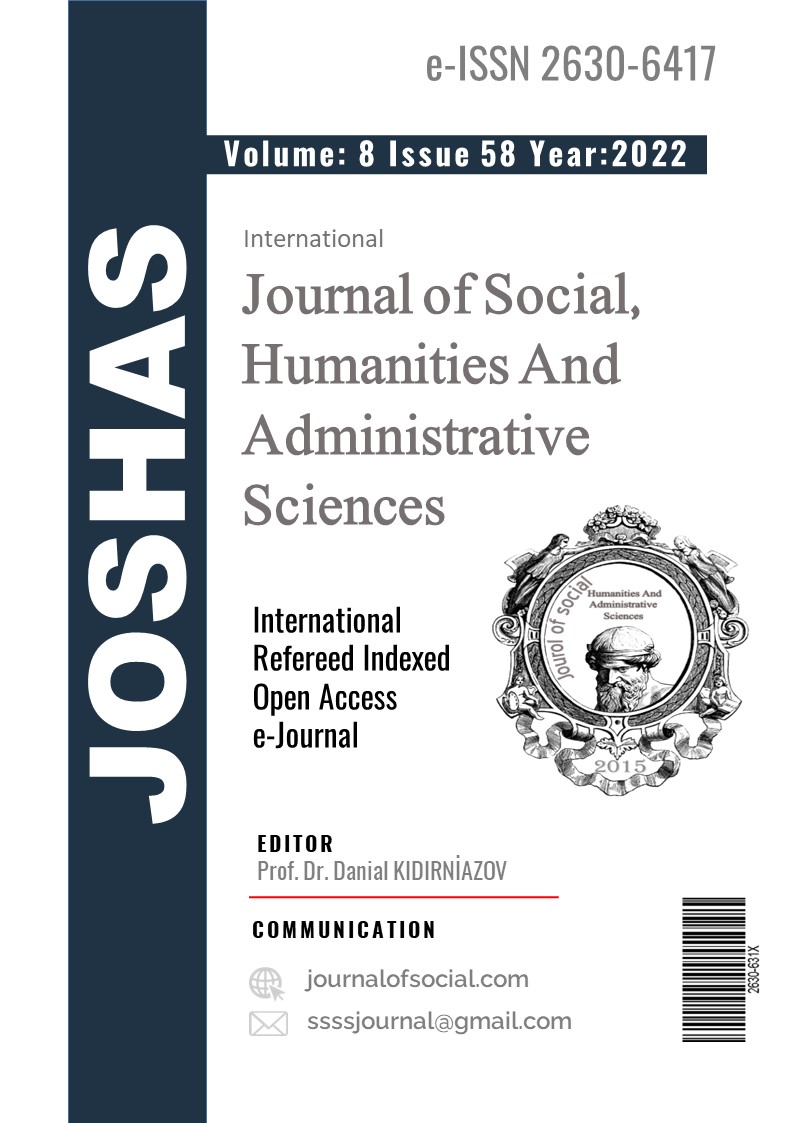Author :
Abstract
Edebiyatın zirve olduğu bir dönemde nazil olan Kur’an, özellikle dil ve belâgat yönü başta olmak üzere benzerinin getirilemeyeceği konusuna dikkat çekmiştir. Kur’an’ın bu özelliği İslam tarihinin ilk döneminden itibaren araştırmalara konu edilmiş, bu minval üzere belâgat ilminin kuralları tespit edilerek müstakil çalışmalar ortaya konulmuştur. Daha sonra başta tefsirler olmak üzere muhtelif eserlerde belâgat üsluplarının Kur’an’da nasıl uygulandığı ve bunların manaya etkisi ile Kur’an’ın mucizevi yönlerine geniş yer verilmiştir.
Tunuslu ve çok yönlü âlim olan İbn ‘Âşûr, çağımızda da devam eden bu gayretlerin son halkalarından biridir. O, Kur’an’ın dil ve belâgat yönünden mucize oluşuna yönelik tahlillerde bulunmuş, Kur’an’da yer alan bazı üslupların cahiliyye dönemine nispetle benzersiz olduğuna ve Kur’an’ın bu yönünün tefsirlerde gereği kadar yer almadığına dikkat çekmiştir. Bu çalışmada ilk defa İbn ‘Âşûr’un tefsirinde dile getirerek kavramlaştırmaya çalıştığı Kur’an’ın belâgat açısından özgünlüğü araştırılacak ve bu konu îcâz örneği özelinde tahlil edilecektir.
Keywords
Abstract
The Qur’an, which was revealed at a time when literature was at its peak, challenged its interlocutors that it could not be similar in terms of language and rhetoric. This challenge of the Qur’an has been the subject of research since the first period of Islamic history, and in this way, the rules of rhetoric have been determined and independent studies have been put forward. Then, there are extensive interpretations on how the arts of rhetoric are applied in the Qur'an and their effect on the meaning and the miraculous aspects of the Qur’an.
Ibn ‘Aşûr, a Tunisian and versatile scholar, who is one of the last links of these efforts that continue in our age, has analyzed the Qur’an’s being a miracle in terms of language and rhetoric. He pointed out that some styles in the Qur'an were unique compared to the period of ignorance and that this aspect of the Qur'an was not included as a term in the tafsir tradition. In this study, the originality of the Qur'an, which Ibn 'Âşûr tried to conceptualize by expressing it in his tafsir for the first time, will be investigated in terms of rhetoric and this subject will be analyzed in terms of the example laconic art.
Keywords
- 1. el-‘Askerî, E. H. S. (1984). Kitâbu’s-Sınâ‘ateyn el-Kitâbe ve’ş-Şi‘r, (tah. Mufit Kamîhâ), Dâru’l-Kutubi’l- İlmiyye, Beyrut.
- 2. el-Bâkillânî, E. B. M. (1954). İ‘câzu’l-Kur’ân, (tah. Seyyid Ahmed Sakr), Dâru’l-Ma‘ârif, Kahire.
- 3. el-Beyzâvî, N. Ö. M. (1998). Envâru’t-Tenzîl ve Esrâru’t-Te’vîl, (tah. Muhammed Abdurrahman), Dâru İhyâi’t- Turâsi’l-‘Arabî, Beyrut.
- 4. Bulut, A. (2015). Belâgat Terimleri Sözlüğü, İFAV Yayınları, İstanbul.
- 5. el-Câhiz, E. O. A. (1965). Kitâbu’l-Hayavân, (tah. Abdusselam Muhammed Harun), Dâru’l-Fikr, 2. Baskı, y.y.
- 6. el-Câhiz. E. O. A. (1998). el-Beyân ve’t-Tebyîn. (tah. Abdusselam Muhammed Harun), Mektebetu’l-Hâncî, 7. Baskı, Kahire.
- 7. el-Cârim, A.&Emîn, M. (2012). el-Belâgatu’l-Vâdıha, Muessetu’r-Risâle, Beyrut.
- 8. Cebeci, L. (2009). “Selsebîl”, TDV İslam Ansiklopedisi, 36/447-448, TDV Yayınları, İstanbul.
- 10. Ebû Ḥayyân, M. Y. (1993). el-Baḥru’l-Muḥît, (tah. Adil Ahmed Abdulmevcûd-Ali Muhammed Mu‘avvid), Dâru’l-Kutubi’l-İlmiyye, Beyrut.
- 11. Ebû Temmâm H. E. H. (2000). Şerhu Dîvânu’l-Hamâse, (tah. el-Hatîb et-Tebrîzî), Dâru’l-Kutubi’l-‘İlmiyye, Beyrut.
- 13. el-Meydânî, E. F. M. (1992). Mecma‘u’l-Emsâl, (tah. Muhammed Muhyiddin Abdulhamid), el-Mektebetu’l- ‘Asriyye, Beyrut.
- 15. Halil b. Ahmed, E. A. F. (1998). Kitâbu’l-‘Ayn, (tah. Mehdi Mahzûmî-İbrahim es-Semrâî), Muessesetu’l-‘Âlemî li’l-Matbû‘ât, Beyrut.
- 16. el-Hansâvî, M. (2000). el-Fâsıla fi’l-Kur’ân, Dâru ‘Ammâr, 2. Baskı, Amman.
- 18. İbn ‘Âşûr, M. T. (1984). et-Tahrîr ve’t-Tenvîr, Dâru’t-Tunûsiyye, Tunus.
- 19. İbn ‘Âşûr, M. T. (1976). Divânu’n-Nâbiğa ez-Zubyânî, eş-Şeriketu’t-Tunûsiyye, Tunus.
- 20. İbn Ebu’l-İsba‘, M. Z. A. (1963). Tahrîru’t-Tahbîr fî Sinâati’ş-Şi‘ri ve’n-Nesri ve Beyâni İ‘câzi’l-Kur’ân, (tah. Hafnâ Muhammed Şark), Lecnetu İhyâi’t-Turâsi’l-İslâmî, Birleşik Arap Emirlikleri.
- 21. İbn Fâris, E. H. A. Z. M. (1997). es-Sâhibiyyu fî Fıkhi’l-Luga el-‘Arabiyye ve ve Mesâilihâ, (tah. Ahmet Hasan Basic), Dâru’l-Kutubi’l-‘İlmiyye, Beyrut.
- 22. İbn Haldun, V. A. M. (2004). Mukaddime, (tah. Abdullah Muhammed Dervîş), 2. Cilt, Mektebetu’l-Hidâye, Dimaşk.
- 23. İbn Kayyım el-Cevziyye, Ş. M. Z. (1981). el-Emsâl fi’l-Kur’âni’l-Kerîm, (tah. Said Muhammed el-Hatîb), Dâru’l- Ma‘rife, Beyrut.
- 24. İbn Manzûr, C. M. E. (1994). Lisânu’l-‘Arab, Dâru’l-Fikr, Beyrut.
- 26. Kabaklı, A. (1994). Türk Edebiyatı, Türk Edebiyatı Vakfı Yayınları, 9. Baskı, İstanbul.
- 27. el-Kazvînî, H. (2003). el-Îzâh fî ‘Ulûmi’l-Belâğa, (tah. İbrahim Şemsuddîn), Dâru’l-Kutubi’l-‘İlmiyye, Beyrut.
- 28. er-Râzî, M. Ö. F. (2005). Mefâtîhu’l-Gayb, (tah. Mektebetu’t-Tevsîk ve’d-Dirâsât), Dâru’l-Fiker, Beyrut.
- 29. es-Sâ‘idî, H. A. İ. (2013). “Mubtekerâtu’l-Kur’ân İnde et-Tâhir İbn ‘Âşûr”, Yüksek Lisans Tezi, Câmi‘atu Ummu’l-Kurâ Kulliyyetu’l-Luğati’l-‘Arabiyye, Mekke.
- 30. es-Sekkâkî, Y. M. A. (1986). Miftâhu’l-‘Ulûm, (tah. Naim Zerzur), Dâru’l-Kutubi’l-İlmiyye, 2. Baskı, Beyrut.
- 31. es-Suyûtî, C. A. (2008). el-İtkân fî ‘Ulûmi’l-Kur’ân, (tah. Şuayb el-Arnavud), Muessesetu’r-Risâle, Beyrut.
- 32. Yenice, M. (2021). Klasik ve Çağdaş Dönemlerde Anlam Bileşenleri, İlâhiyat Yayınları, Ankara.
- 33. Yenice, M. (2021). İçerik Yönüyle Mu‘Allaka Şiirlerinin Değeri ve Tarafe B. El-‘Abd’in Mu‘Allakası, Uluslararası Sosyal Araştırmalar Dergisi, 14/76.
- 34. ez-Zemahşerî, M. Ö. (1985). Esâsu’l-Belâğa, el-Hey’etu’l-Mısriyye, 2. Baskı, Mısır.
- 35. ez-Zemahşerî, M. Ö. (2016). el-Keşşâf ‘an Hakâiki Ğavâmidi’t-Tenzîl ve ‘Uyûni’l-Ekâvil fî Vucûhi’t-Te’vîl, (tah. Ebu Abdillah ed-Dânî), Dâru’l-Kutubi’l-Arabî, Beyrut.





